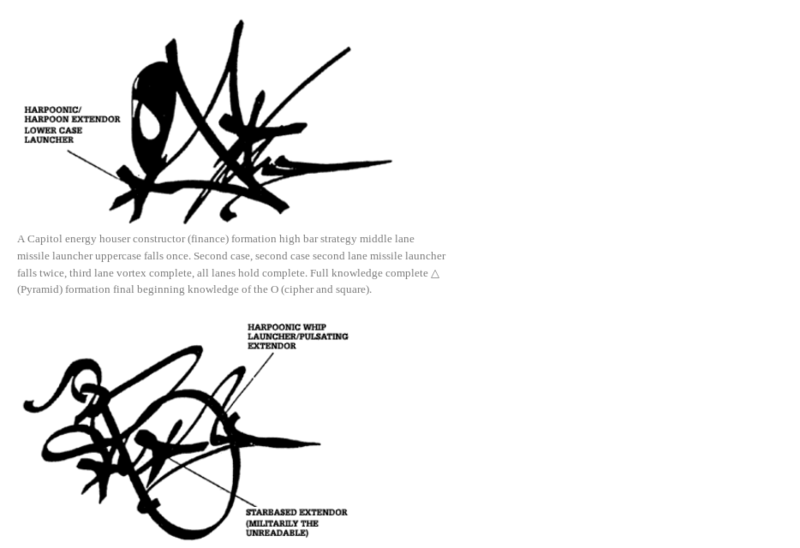User:E.zn/Methods: Difference between revisions
No edit summary |
|||
| (4 intermediate revisions by the same user not shown) | |||
| Line 1: | Line 1: | ||
[[File:Review.gif|thumb|right|Reviewer's notes. [https://twitter.com/Used_For_Glue/status/1172998527867338753 src]] | <!--[[File:Review.gif|thumb|right|Reviewer's notes. [https://twitter.com/Used_For_Glue/status/1172998527867338753 src]]--> | ||
== What / How / Why == | == What / How / Why == | ||
Describing object, method and motivation [50 words each] | Describing object, method and motivation [50 words each] | ||
==On a text from suggested readings== | |||
'''Johanna Drucker - Reading Interface''' | |||
<br>Drucker notes how misguided our perceptions of GUI can be: we are so used to it that we see it as a static entity and also we are tricked into thinking that it depicts the behind-the-scene processes. She suggests dissecting the GUI features and how it posits the role of a user in relation to the systems running it in order to comprehend it holistically. To have a better grasp of GUI it is important to have a historical timeline of its development and seeing all the incentives it was based on. Few of those iterations were bases on other scientists' experiments and theories. | |||
<br>The core aspect of perceiving the interface lays in the idea that although it's an abstraction supposedly representing the real world objects and/or are named after them [folder; file etc], we have no need for them to behave or feel like those objects in order to be comfortable with them. | |||
<br>I'd pair this with [http://www.drzulu.com/the-rammellzee-ionic-treatise-gothic-futurism/ '''Ionic Treatise Gothic Futurism Assassin Knowledges Of the Remanipulated Square Point’s One to 720° to 1440° The RAMM-ΣLL-ZΣΣ'''] | |||
[[File:Rammellzee.png|800px]] | |||
==Etherpads== | ==Etherpads== | ||
| Line 56: | Line 66: | ||
[http://ubu.com/ http://ubu.com UBU-web]<br> | [http://ubu.com/ http://ubu.com UBU-web]<br> | ||
[http://pzwiki.wdka.nl/mediadesign/XPPL XPPL]<br> | [http://pzwiki.wdka.nl/mediadesign/XPPL XPPL]<br> | ||
[[Category:LFP]] | |||
Latest revision as of 05:55, 20 April 2020
What / How / Why
Describing object, method and motivation [50 words each]
On a text from suggested readings
Johanna Drucker - Reading Interface
Drucker notes how misguided our perceptions of GUI can be: we are so used to it that we see it as a static entity and also we are tricked into thinking that it depicts the behind-the-scene processes. She suggests dissecting the GUI features and how it posits the role of a user in relation to the systems running it in order to comprehend it holistically. To have a better grasp of GUI it is important to have a historical timeline of its development and seeing all the incentives it was based on. Few of those iterations were bases on other scientists' experiments and theories.
The core aspect of perceiving the interface lays in the idea that although it's an abstraction supposedly representing the real world objects and/or are named after them [folder; file etc], we have no need for them to behave or feel like those objects in order to be comfortable with them.
I'd pair this with Ionic Treatise Gothic Futurism Assassin Knowledges Of the Remanipulated Square Point’s One to 720° to 1440° The RAMM-ΣLL-ZΣΣ
Etherpads
Sources, references and recommendations by Steve
Reading list
Johanna Drucker - Reading Interface
Alexander R. Galloway - The Interface Effect
Katherine Hayles - Writing Machines [on materiality]
Katherine Hayles - How we became post-human?
Matthew Fuller - Behind the Blip: Essays on the Culture of Software [Chapter: The Impossibility of interface p.99]
Matthew Fuller - Software Studies [lexicon of terms] [Chapter: Interface p.151]
Friedrich Kittler - There Is No Software
Walter Ong - Orality and Literacy
Marshall McLuhan - The Gutenberg Galaxy [The Making of Typographic Man]
Jack Goody - The interface between the written and the oral [1987]
Eric Havelock - Preface to Plato
Additional references
nointerface
Gaze-Based Interaction Design[Speculative Interface]
Anika Schwarzlose - Time moves into one Direction - Memory into the other
Response to "The Impossibility of Interface"
Petra Milicki - Annotation: The Impossibility of Interface
Marie Wocher - Annotation: The Impossibility of Interface
IMPAKT FESTIVAL, on speculative interface.
Sample libraries
Radical Militant Library [Jotunbane’s Reading Club]
#icanhazpdf
aaaaarg
Bibliotheca
Clockwise libraries
Library Genesis
Memory of the world
Monoskop
On Our Backs
Project Gutenberg
Sci-hub
Textz.com
bibliotik.me
volafile.org
#bookz on IRCHighway/undernet
The Piratebay @ Worm
http://ubu.com UBU-web
XPPL

